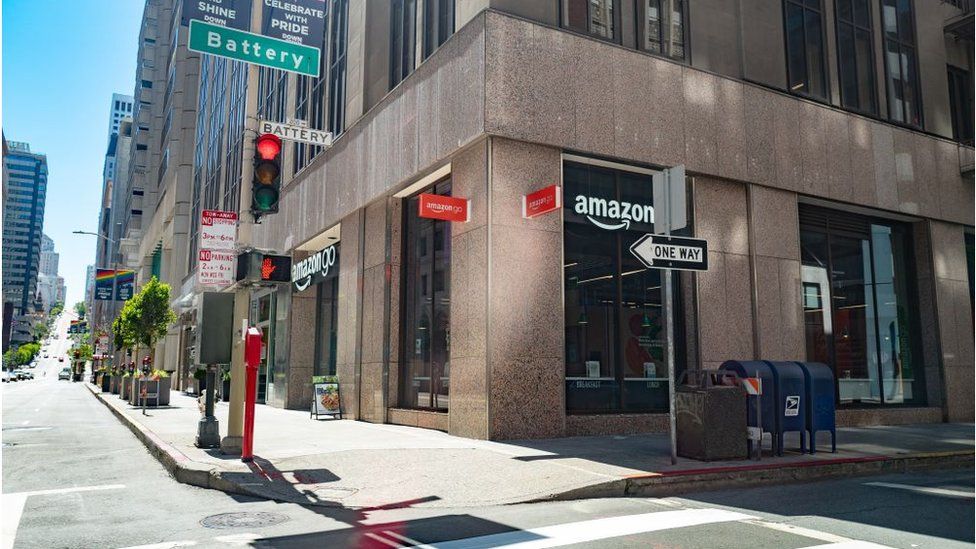Amazon 'planning to open department stores in US'
- Published

When Amazon, which is often blamed for single-handedly ruining the High Street, opened its first physical bookshops in 2015 it sparked fury in some quarters.
But after branching out into grocery and gadget shops, the e-commerce giant now reportedly plans to go much further - opening several large bricks-and-mortar retail sites akin to department stores.
Amazon declined to comment on the claims, made by the Wall Street Journal, calling them "rumours and speculation".
But the newspaper said Ohio and California had already been earmarked as probable locations.
Quoting people familiar with the plans, it said the new retail spaces will be around 30,000 square feet, smaller than most department stores, which typically occupy about 100,000 square feet, and will offer items from top consumer brands.
It is unclear what brands Amazon will stock, although its private-label goods are expected to feature prominently, the WSJ added.
Amazon, which is now the world's largest retailer outside of China, has been instrumental in driving more shopping online - a trend that has pushed many bricks-and-mortar stores to the brink.
In the last few years, US and UK retailers such as Toys R Us, Muji USA, Debenhams and Maplin have gone under in part because of the rise of cheaper online competitors.
'Author of their own demise'
When Amazon opened its first bookshop in Seattle, UK book store chain Waterstones said it hoped the venture "falls flat on its face".
But Neil Saunders, managing director of retail analysts GlobalData, said Amazon's move into "big box retail" would make sense despite warnings that "the department store format is dead".
"Department stores did not die because the concept of a store that stocks many goods is irrelevant. If this were so a retailer like Target, which is essentially a department store for the modern era, would not be thriving," he said.
"Traditional US department stores have been the author of their own demise by their failure to innovative and adapt."
Against this backdrop, he said Amazon's plans would have a fighting chance of success. He also said the shops are likely to be much smaller than larger department stores and in locations with good footfall rather than in failing malls.
As for why the retailer may be doing this now, he said Amazon was likely to have an eye on the future, when growth in its online business may slow down.
'Emerging from the pandemic'
"Amazon knows that the future of retail is multichannel... most consumers still shop using a combination of stores and online," Mr Saunders said.
"Stores will help Amazon do a much better job of showcasing its offer," he added.
There are clear risks to the move, though, not least because department stores have seen their share of US retail slip from 14.5% in 1985 to about 2.9% today.
Amazon's own physical-store sales fell about 5% last year as customers shopped more online.
But analysts say major US department stores have been doing better, with Macy's and Kohl's both raising their outlooks after increasing vaccination rates brought more shoppers back to their shops.
"We are emerging from the pandemic, a stronger company than we were before it began in the second quarter, " said Macy's boss Jeff Gennette, as shares in the chain surged by 21% on Thursday.
- Published4 March 2021
- Published3 November 2015